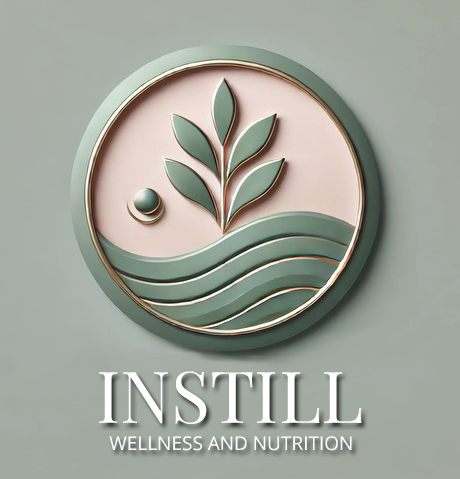As the days grow longer and the sun shines brighter, you might find yourself enjoying more time outdoors. And while the sun can provide us with many wonderful things (stress reduction, better sleep, and vitamin D, to name a few), it also poses a risk of skin damage. Protecting our skin from harmful UV rays is essential, not only to prevent sunburn but also to reduce the risk of long-term issues like premature aging and skin cancer. So let’s explore a few natural tips to help you protect your skin from sun damage using diet, supplements, and non-toxic sunscreens.
Diet for Sun Protection
Interestingly enough, what we eat can significantly influence our skin’s ability to protect itself from sun damage, and certain foods are known to enhance the skin’s natural defense against UV radiation.
1. Antioxidant-Rich Foods Antioxidants neutralize free radicals, which can cause damage to the skin cells when exposed to UV rays. Foods high in antioxidants include berries (blueberries, strawberries), dark chocolate, pecans, and artichokes. A diet rich in these foods can help your skin stay resilient under the sun (1).
2. Omega-3 Fatty Acids Omega-3 fatty acids found in fish like salmon, mackerel, and sardines have anti-inflammatory properties that can help reduce the skin’s sensitivity to UV rays. Incorporating these fish into your diet, or supplementing with fish oil, can provide your skin with additional protection (2).
3. Tomatoes and Carrots Both tomatoes and carrots are high in carotenoids, which are known for their skin-protective benefits. Lycopene in tomatoes and beta-carotene in carrots can help reduce sunburn severity and protect against UV-induced damage. Including these colorful vegetables in your diet can bolster your skin’s natural defenses (3).
Supplements for Skin Protection
While diet plays a crucial role, supplements can also provide targeted support to protect your skin from the inside out.
1. Vitamin C and E These vitamins are powerful antioxidants that work synergistically to protect the skin from UV damage. Vitamin C helps in collagen production, while Vitamin E provides a protective barrier. Supplementing with these vitamins can help reduce the impact of sun exposure (4).
2. Astaxanthin Astaxanthin is a potent antioxidant derived from microalgae. It has been shown to improve skin elasticity and reduce the signs of UV-induced damage. Taking astaxanthin supplements can provide an extra layer of protection for your skin (5).
Non-Toxic Sunscreens
Traditional sunscreens often contain chemicals that can be harmful to both your skin and the environment. Opting for non-toxic, mineral-based sunscreens can provide effective protection without the negative side effects.
1. Zinc Oxide and Titanium Dioxide These minerals sit on top of the skin and reflect UV rays, providing a physical barrier against sun damage. Look for sunscreens that use these ingredients as they are safe and effective for broad-spectrum protection.
2. Natural Oils with SPF Certain natural oils have SPF properties and can be used for additional protection. Red raspberry seed oil, for example, has an SPF of around 28-50, while carrot seed oil has an SPF of around 38-40. These oils can be mixed with your favorite moisturizer for a natural, protective boost.
Protecting your skin from sun damage is essential for maintaining its health and vitality. By incorporating antioxidant-rich foods, omega-3 fatty acids, and carotenoids into your diet, considering supplementing with vitamins C and E and astaxanthin, and using non-toxic sunscreens with ingredients like zinc oxide and natural oils, you can keep your skin healthy and radiant while enjoying the sunny days ahead.
References:
- Sies, H., & Stahl, W. (2004). Carotenoids and UV protection. Photochemical & Photobiological Sciences, 3(8), 749-752.
- Pilkington, S. M., Watson, R. E. B., Nicolaou, A., & Rhodes, L. E. (2011). Omega-3 polyunsaturated fatty acids: photoprotective macronutrients. Experimental Dermatology, 20(7), 537-543.


